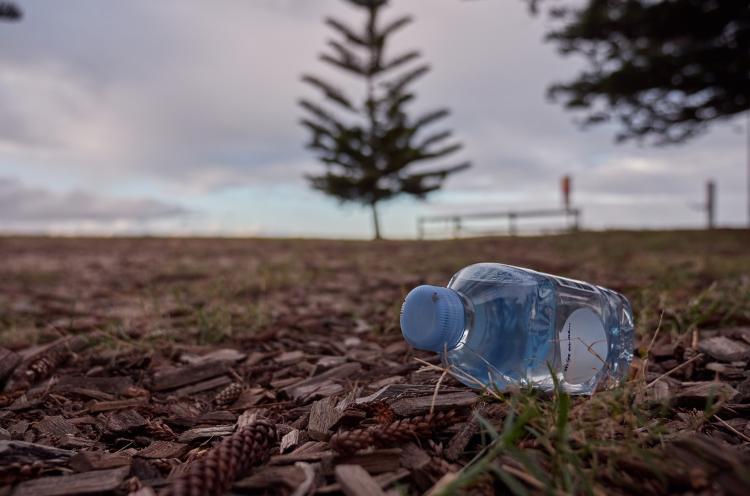
Plastics like single-use lightweight bags, cotton-buds, straws and stirrers will be phased out, and green bins for food and organic waste will be rolled out across the state, under the NSW Government’s comprehensive plastics plan and waste strategy.
Premier Gladys Berejiklian said more than $356 million will be invested over five years to implement the nation leading plans to protect the environment and promote recycling.
“We want NSW to be a leader when it comes to reducing waste, maximising recycling and protecting our environment, but we want to do it in a way that drives job creation and innovation," Ms Berejiklian said.
“The community has high expectations and we need to make sure we put in place the best plans for the future while also giving businesses and councils enough time to adjust to the phase-outs and find sustainable alternatives.”
Environment Minister Matt Kean said we must reduce the plastics ending up in the environment because we are on track to see more plastic in the ocean than fish by 2050.
“The single-use items we are phasing-out will stop an estimated 2.7 billion items of plastic litter from ending up in our environment and waterways over the next 20 years,” Mr Kean said.
“We can’t keep sending our scraps to languish in landfill when there are huge opportunities to turn our trash into treasure.
“Under our plans, every household will have access to a separate bin for their food and organic waste for the first time in NSW.
“This will not only deliver on our commitment to achieve zero emissions from organics in landfill by 2030, but will also grow our economy by extracting more resources like biogas from our waste.
“In addition, we will lead by example and help stimulate new markets for sustainable products by adopting an ‘if not, why not’ approach to the use of recycled materials in government procurement.”
Small businesses will be supported to transition to new products before the phase-outs come into effect. Exemptions will also be available for members of the community who rely on particular single-use plastics for disability or health needs.
A statewide education campaign will be rolled out to provide households with clear information on how to get onboard with the new waste programs, and learn how to properly dispose of their food and organic waste.
The government will also continue to work closely with councils, with $206 million in funding available to support local government to deliver these ambitious plans, including $65 million to support the rollout of green bins.
The NSW Government will consult on and introduce the necessary legislation and regulations to deliver on the plans to Parliament in the coming months.
For more information on the Waste Strategy, visit www.dpie.nsw.gov.au/wsms
For more information on the Plastics Action Plan www.dpie.nsw.gov.au/pap
Key targets
- Cut total waste generated by 10 per cent per person by 2030;
- Recover 80 per cent of resources from all waste streams by 2030;
- Cut plastic litter by 30 per cent by 2025;
- Cut overall litter by 60 per cent by 2030; and,
- Triple the plastics recycling rate by 2030.
Key features
- Requiring separate food and organics waste collection for all NSW households by 2030, backed by $65 million in funding;
- Requiring all NSW Government agencies to preference recycled content on an ‘if not, why not’ basis;
- Promoting production of low-carbon recycled materials from waste for reuse in the NSW economy;
- Establishing a new scheme to incentivise the creation and use of biogas from waste;
- Strategically planning for long-term infrastructure needs;
- Financial incentives for manufacturers and producers to design out problematic plastics;
- Supporting councils to jointly procure waste services to get better value and waste outcomes for their local communities; and
- Developing and coordinating a statewide education campaign on waste reduction, recycling and organics to provide households with better information and reduce contamination costs for councils.
Timeline for phase-out of problematic plastics
| Single-use plastic item | Phase out period (from passage of legislation) |
|
Lightweight plastic shopping bags
(<35 microns) |
6 months |
| Plastic straws | 12 months |
| Plastic stirrers | 12 months |
| Plastic cutlery | 12 months |
| Expanded polystyrene cups and serving ware | 12 months |
| Cotton buds with plastics sticks | 12 months |
| Microbeads in rinse-off personal care and cosmetic products | 12 months |
| Heavyweight bags | Review in 3 years |
| Barrier/ produce bags | Review in 3 years |
| Plastic cups, including lids | Review in 3 years |
| Plastic bowls (including lids) and plates | Review in 3 years |
| Fruit stickers (non-compostable) | Review in 3 years |
| Oxo-degradable plastics | Review in 3 years |
